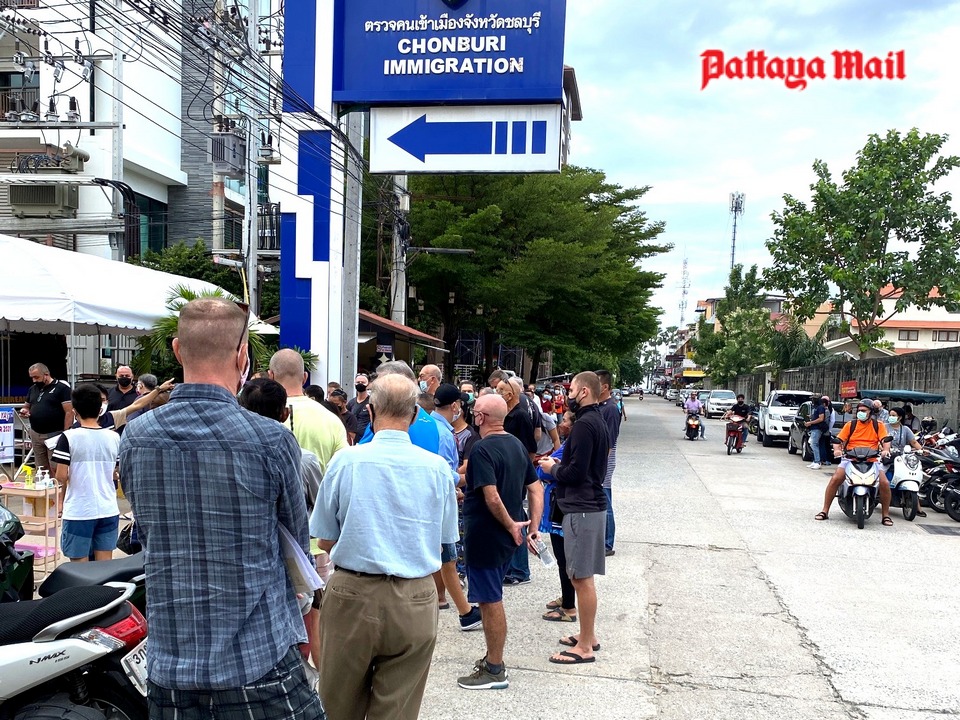

Q: Why has Thailand decided to cancel the Covid extensions for tourists?
No more 60 day extensions will be granted after March 25 and, in the transition period, there will be more form-filling and questions at the immigration office. Many people have indeed expressed surprise at the decision as Thailand is very short of international tourists and those who remain here long-term are an important source of revenue.
The Thai government argues that the international travel chaos of the early Covid pandemic era has subsided and that it is no longer necessary to ignore traditional immigration rules. Government research has apparently shown that up to 50,000 foreigners have taken advantage of the Covid discretion for almost two years. Other nearby countries, Vietnam in particular, initially adopted similar Covid extensions but have now ended the discretion. European countries and the United States never showed the same ease and generosity in the past two years.
Over the next few months, as Covid extensions die out, most foreigners who have used them will return to their home country. Those that do not wish to will need to fly out as the land borders remain closed to tourist traffic and so-called visa runs. Of course, it is possible that the land borders with Cambodia and Laos in particular will become more open. They currently restrict entry and departure to goods traffic and local nationals working in Thailand or returning to their homes. Progress in this regard depends on the future course of the pandemic.
Q: Is there a special visa for foreigners married to Thais who are working abroad?
The Thai authorities have always recognized that one year visas and annual extensions of stay are not always suitable for foreigners married to Thais who work abroad and visit here for several weeks at a time. So there is a special “60 days discretion” which means that a foreigner in this position can enter with any visa or permission – such as 30 days on arrival – and then apply for a two months’ extra extension of stay. Incidentally, this has nothing to do with Covid discretion and is entirely a separate matter.
The foreigner should turn up at immigration before the expiry of his first visa and show documents for the marriage and proof of a local address. The application must be made in the same province as the home base. The spouse should accompany him and bring her ID. Recent photos and proof of any children born to the couple help in some immigration offices. The 60 days cannot be immediately extended, but can be obtained again on the next trip by the foreigner. Once the foreigner is based in Thailand, then he can apply for an annually renewable extension of stay based on a marriage. Some men over 50 in that position prefer to opt for the retirement extension (fewer documents required) or choose the Elite program of visas becoming increasingly popular these days.
Q: What is your take on the recent announcement that retirees can self-insure?
You are referring to the recent announcement that, from October 1, applicants for the O/A retiree visa or extension of stay will be able to show 3 million baht in cash or property or bond holdings if they cannot find hospital insurance because of their age or health. I believe it is a sensible step forward as medical insurance is fast becoming essential worldwide because of the Covid legacy. But there are those who cannot be insured, usually because of age or their medical history. The question has to be asked – how will retirees pay for a medical emergency?
In fact, the new feature applies only to the O/A visa and not to any others. There is a lot of detail still to be worked out, particularly if the assets or cash are held abroad. Embassies and the Ministry of Foreign Affairs will almost certainly have to stamp supporting documentation by the applicant. It is too early to give a definitive judgment on this pilot scheme but I think it is a step forward. It gives retirees, or some of them, a way of securing their long stay visa without medical insurance whilst protecting Thai hospitals who are not in a position to offer free treatment.
 |
 |
 |





